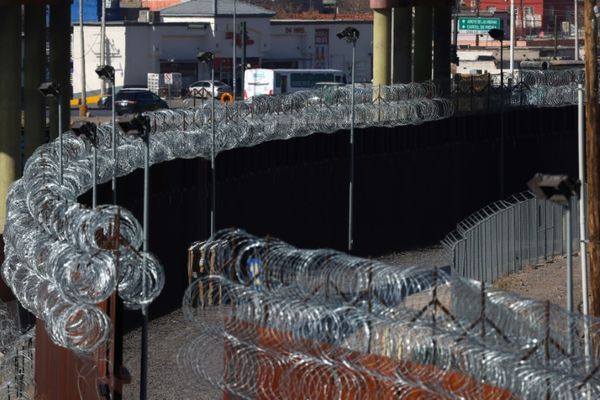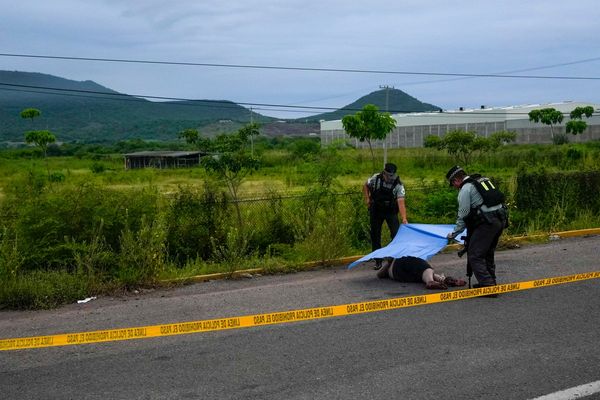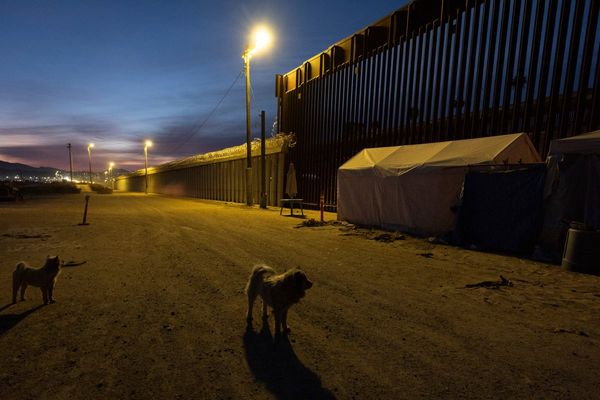
The decision of the United Kingdom High Court to allow imprisoned Australian publisher Julian Assange to appeal his extradition to the United States is partly due to the actions and policies of the Australian government.
Not the Albanese government, which has — we’re told — ineffectually lobbied the Biden administration to drop its long-running attempts to prosecute Assange for his journalism. Anthony Albanese can say “enough is enough” as often as he likes but he lacks either the capacity or the willingness to genuinely pressure the Americans.
Instead, it’s the Abbott government that has, a decade later, played a role in Assange’s appeal. Assange can appeal his extradition in relation to assurances provided by the US government about free speech — and his ability to rely on that in his defence — and prejudice because of his nationality.
At the heart of the case is how much weight should be placed on the blithe assurances of the Biden administration about how Assange would be treated in the US. The one assurance Assange’s legal team has now accepted is that Biden won’t pursue the death penalty against Assange, which is mighty big of the Americans (that’s not sarcastic: under Trump, the CIA discussed murdering Assange).
One of the reasons that the assurances of a foreign government have been and will continue to be tested going forward in the appeal is because of the ripples from a decision by the Court of Appeal last year, later upheld by the Supreme Court, to overturn the Sunak government’s “Rwanda Solution”.
The UK Tories, with their connections to the Australian Liberal party via C|T Group and key figures like Sir Lynton Crosby, embraced the Abbott government’s “Stop the Boats” campaign in an effort to both thwart, and politically capitalise on, a large number of illegal immigrants crossing the English Channel from France. Similar to the Abbott government’s Operation Sovereign Borders campaign, the UK government proposed to turn back boats to France, and it adopted its own version of the Pacific Solution by striking a deal with Rwanda. The UK would send asylum applicants to Rwanda, where their asylum claims would be processed and, if approved, they would be resettled.
After the policy passed its first court test, the Court of Appeal and then the Supreme Court both decided that Rwanda was not an appropriate destination for asylum seekers because of the risk of refoulment, on the basis that the UK government was not entitled to uncritically accept the assurances of the Rwandan government as to the treatment of the people it sent there. In the words of the Supreme Court justices:
The European and domestic case law is clear that, in cases like this one, the court is required to consider how the asylum system in the receiving state, in this case Rwanda, operates in practice. In doing so, the court should have regard to deficiencies identified by expert bodies such as UNHCR. Where safety in the receiving state depends on assurances given by its government about the treatment of individuals who are sent there, the court is required to carry out a fact-sensitive evaluation of how the assurances will operate. Relevant factors include the general human rights situation in the receiving state, the receiving state’s laws and practices, its record in complying with similar assurances given in the past and the existence of monitoring mechanisms.
The problem for the United States in its persecution of Assange is that its request for his extradition relied on assurances it was providing to the UK, particularly but not only around the death penalty. Assange’s legal team argued that the US’ assurances could not be accepted at face value but must be subject to the kind of fact-sensitive evaluation that the UK government should have applied to the Rwandan assurances (the Sunak government has since changed the law in order for it to proceed with the Rwanda plan, although boat numbers in the Channel have reached record levels).
In short, if it wasn’t for Tony Abbott’s “stop the boats” and his UK colleague’s enthusiastic embrace of the idea, the legal ground Assange is treading might be much less firm. A final resolution remains some time off, given there’s no date yet set for the appeal proper. In the meantime, Assange rots in Belmarsh Prison, as he has for five years, unconvicted of any crime. And whatever its rhetoric, the Albanese government has managed nothing to change that.







